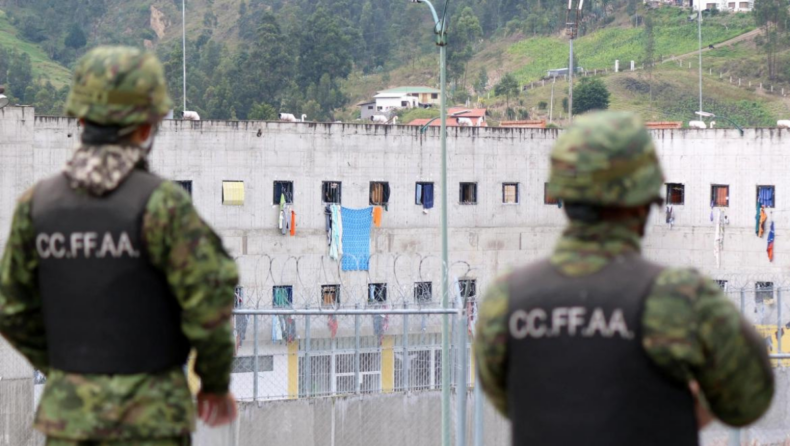
A series of recent prison massacres has killed hundreds, with critics saying that the government is neglecting its duty of care.
Jonathan Burbano, Alex’s youngest brother, was quiet and serious. Then, in September 2021, he was halfway through a two-year prison sentence when he was killed in a prison massacre at Guayaquil’s Litoral Penitentiary.
Last year, a string of Ecuadorian prison riots resulted in 119 deaths, making it one of the deadliest. On September 28, Alex’s family received an email warning that riots had broken out at Litoral, and they waited anxiously for news about Jonathan all day.
He finally called around 9 pm via WhatsApp, a common form of communication within Ecuador’s prisons. Although he told his family he was fine, they could hear gunshots and explosions in the background.
They never heard from Jonathan again. Alex later learned that a grenade was detonated near his brother’s cell. He died of a traumatic brain injury, according to the autopsy. Since there were no records of who was incarcerated in each cell, it took the authorities two days to confirm that Jonathan had died.
“The state has no control over anything,” he said from his home in southern Guayaquil. If there are weapons or explosives in prison, you realise there is no control. So, where does it all come from? Through the front door. “

Alex says he will never know who killed his brother, but the Ecuadorian government is ultimately responsible. So, Alex founded the Committee of Families for Justice in Prisons to push for reforms and demand that the state be held accountable for decades of neglect by relatives of other prisoners who died in the recent massacres.
“I’m fighting because Jonathan had rights as a human being, and he was in the state’s custody,” Alex said. “It’s impossible for me not to be angry,” he replied.
Calls for accountability
According to the government, around 400 prisoners have died in riots in Ecuador’s prisons since February last year. The actual number, family members say, is much higher due to a steady stream of news reports about violence and assassinations of inmates.
According to Billy Navarrete, director of the Committee for the Defense of Human Rights in Guayaquil (CDH), Alex and the other relatives who have banded together to seek prison reform are taking the proper steps.
Navarrete has studied Ecuador’s prison system for more than three decades and says that the current crisis results from years of government neglect. Neither the state nor the guards have been trained or rehabilitated. He said corruption has flourished in overcrowded facilities while prisoners and their families have suffered.

whose last name was withheld for fear of retribution, said she had been paying criminal groups who controlled her husband’s wing of Litoral more than $100 a month for his food, phone, and other expenses.
It was difficult since she was unemployed and had to take care of her four children independently-but she feared the worst if she did not comply. Then, during a riot in February 2021, her husband was strangled.
A member of the Committee of Families for Justice in Prisons, Kimberley, said, “I hope that he does not go unpunished with all my heart.” “Because going to jail is like throwing a person into the lion’s cage.
During the past year, Ecuadorian President Guillermo Lasso has repeatedly condemned the gangs that control the prisons as responsible for the massacres.
He announced plans to “strengthen prison intelligence” and “do a much deeper clean of weapons, explosives, and materials that shouldn’t be in prisons and have entered due to corruption”.
However, human rights groups, including the United Nations, Amnesty International, and the Inter-American Commission on Human Rights, have called for more comprehensive reforms.

In Ecuador, a special committee of legislators presented more than 70 urgent recommendations last year, including reforming the rehabilitation system and dismantling prison gangs. In addition, Ecuador’s human rights secretariat issued a nearly 200-page report urging reforms in February. But such recommendations “haven’t translated into actions,” Navarrete said.
Read More – Julian Assange loses his Ecuadorian Citizenship













